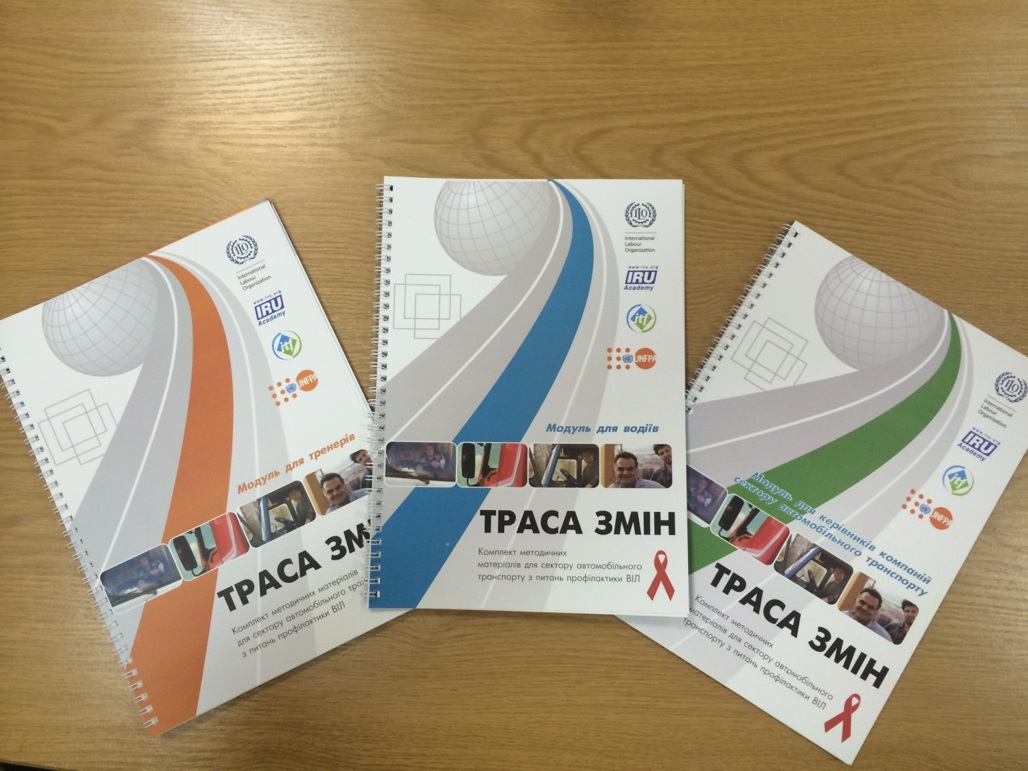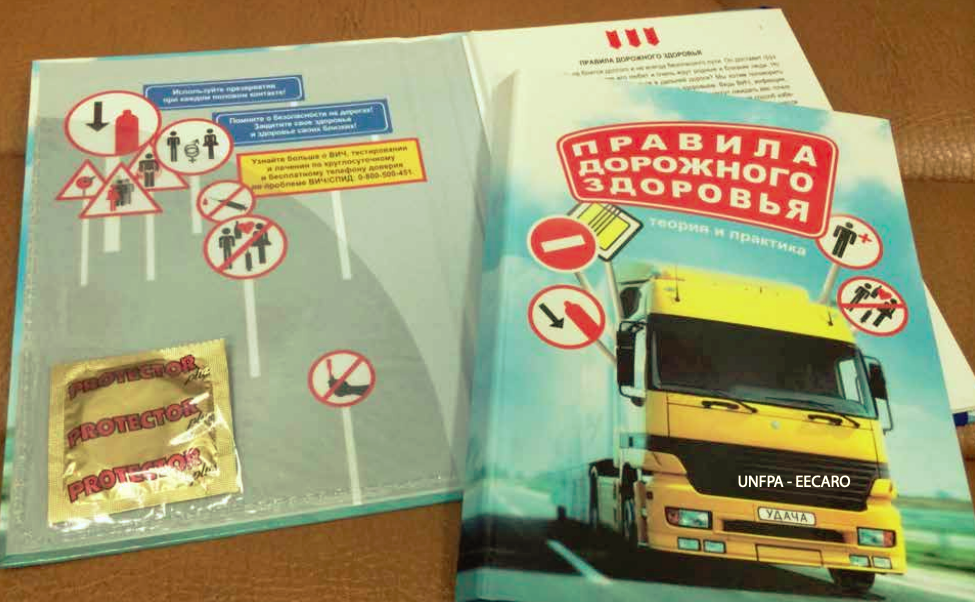 HIV Prevention among Truck Drivers
Experience sharing on HIV prevention among highly vulnerable groups of people.
HIV Prevention among Truck Drivers
Experience sharing on HIV prevention among highly vulnerable groups of people.

Challenges
Sex workers of all genders, men who have sex with men (MSM), transgender people, people who inject drugs and people in detention (prison or other closed settings) were especially vulnerable to HIV in all epidemic settings. In this context, clients of sex workers played an increasingly important role in the sexual transmission of HIV. In Ukraine, truck drivers had been identified as a key group amongst this clientele. Thus, there was an intervention to raise awareness about HIV and safe behaviour among truck drivers and decrease unprotected sex. A special training course on HIV prevention for the road transport sector was adapted into the mandatory certificate programmes by the Ukrainian Association of International Cargo Transporters, the organization that unites 3,500 transport companies in Ukraine, involving approximately 200,000 drivers.
The issue with the same vulnerable population group also existed in Moldova, thus the opportunity existed for a South-South cooperation to share the know-how and lessons learned from Ukraine to Moldova.
Towards a Solution
Through a cross-country cooperation initiative, UNFPA facilitated the expansion of the positive experience of Ukraine to Moldova as it developed targeted interventions for truck drivers. The Ukraine set of interventions was composed of the adaptation of the ILO training toolkit on HIV/AIDS for the road transport sector, institutionalizing the HIV prevention training course, training of trainers, training for managers of the transport sector, and the distribution of information kits and condoms.
The knowledge and experience-sharing initiative included conducting environmental scanning to understand the structure of truck driver networks, identifying relevant partners, undertaking knowledge, attitudes, beliefs and practices (KABP) surveys among truck drivers to assess practices with regard to HIV and risky behaviour, and formulating action plans.
Results
This partnership generated commitment of the key stakeholders in Moldova, such as the Ministry of Transport and Road Infrastructure, National Agency for Transport Auto, Union of Road Transporters and Road Workers, International Association of Auto Transporters, Training Centre of Staff for International Transportation, Health and Education, as well as other government agencies and NGOs engaged in HIV prevention. As further proof of this successful advocacy, this planned initiative was incorporated in the draft National AIDS Strategy.
Lessons Learned
While training courses for truck drivers raise awareness about HIV prevention, follow-up mechanisms, such as conducting studies on how the courses have changed their behaviour, would be helpful. The training design requires the use of peer educators among the drivers themselves; but many are reluctant to serve as such due to lack of free time. Finally, there is a need to improve sustainability further by involving more industry players.
Contact Information
Countries involved
Supported by
Implementing Entities
Project Status
Project Period
Primary SDG
Secondary SDGs
Similar Solutions
| NAME OF SOLUTION | Countries | SDG | Project Status | |
|---|---|---|---|---|
A Billion Brains: Smarter Children, Healthier Economies High Level Meeting on South-South Cooperation for Child Rights |
Republic of Moldova, Ukraine | 17 - Partnerships for the Goals | Completed | View Details |
Accelerating the Implementation of African Union Treaties in São Tomé and Príncipe South-South learning from the Beninese judicial system’s experience in the application of human rights treaties to its national law |
Republic of Moldova, Ukraine | 05 - Gender Equality | Completed | View Details |
Accelerating the Transformational Shift to a Low-Carbon Economy in Mauritius Towards supplying 35 percent of the country’s energy needs with renewables by 2025 |
Republic of Moldova, Ukraine | 05 - Gender Equality 09 - Industry, Innovation and Infrastructure 13 - Climate Action | Ongoing | View Details |
Access to Justice through e-Services and Dematerialized Case Management Scaling up connectivity and unlocking the digital potential of judicial institutions to enhance access to justice for all |
Republic of Moldova, Ukraine | 05 - Gender Equality | Completed | View Details |
ACP Business-friendly Supporting business-friendly and inclusive national and regional policies, and strengthening productive capabilities and value chains |
Republic of Moldova, Ukraine | 08 - Decent Work and Economic Growth 17 - Partnerships for the Goals | Ongoing | View Details |

